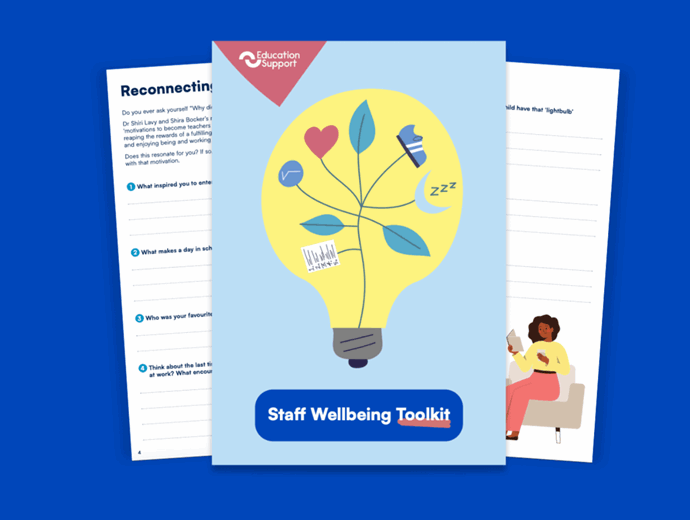Resources
Discover articles, videos and guides to help you and your organisation with mental health and wellbeing.
Information on a range topics from handling stress to preventing burnout and self-care tips. All designed to keep you informed and healthy.

Working in education is demanding. Our resources help you check how your teams are coping, and boost everyone’s wellbeing.


LATEST RESOURCES
Help for individuals

No matter what you’re going through, we’re always here for you, day or night, all the time. You'll feel better.

50% of staff say their school’s culture has a negative effect on their wellbeing. Together, we can change this.
Sign up for your free wellbeing toolkit, packed with helpful resources designed to make a meaningful difference to your staff’s wellbeing.
Get your staff wellbeing toolkit!
Resources, tools and guidance for you and your colleagues.

























